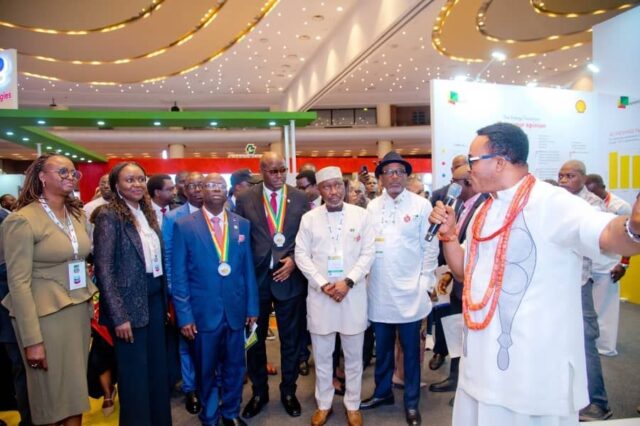
…One way it can do this is by encouraging Public-Private Partnerships in renewable energy to overcome high investment costs and limited access to financing.
…Aiboni also called for investments in lower-carbon energy sources through the expansion of natural gas portfolio and gas infrastructure projects
WED, NOV 15 2023-theGBJournal|Nigeria has to diversify its renewable energy portfolio if it must reduce carbon emissions from fossil fuel production and at the same time meet the energy needs of a growing population, Managing Director, Shell Nigeria Exploration and Production Company Limited (SNEPCo,) Elohor Aiboni has said.
One way it can do this is by encouraging Public-Private Partnerships in renewable energy to overcome high investment costs and limited access to financing.
Mrs. Aiboni was speaking at the opening ceremony of the 41st annual international conference and exhibition of the National Association of Petroleum Explorationists (NAPE) in Lagos yesterday.
She said Nigeria’s move to reduce carbons emission from fossil fuel was a national endeavour that required the co-operation of individuals and corporate bodies.
She cited All On, an impact investing company set up by Shell in Nigeria 2017, as a good example of a private sector intervention in renewable energy.
All On has so far delivered more than 75,000 energy connections in Nigeria through its investee companies from solar energy systems, solar assembly, cold storage and mini grids.
Aiboni also called for investments in lower-carbon energy sources through the expansion of natural gas portfolio and gas infrastructure projects like pipelines, processing, and distribution facilities.
These, she said, could enable Nigeria to boost domestic gas supply, intra-regional trade, and global exports, while also closing the energy access gap and reducing the risk of stranded gas resources.
On the role of technology in promoting energy efficiency, she said advancements, such as artificial intelligence and robotics as well as innovations in proactive and predictive surveillance, had helped to “increase equipment runtime and reduce trips, thus eliminating intermittent flaring.”
Shell has implemented these innovations in its operations achieving over 50% flare reduction onshore and almost non-existent in deepwater operations.
“Opportunities offered by renewables, innovation and emerging technologies represent the tripod on which the industry stands and must be leveraged as enablers,” she noted.
Aiboni commended NAPE for the five-day conference and expressed the hope that the discussions would “go a long way in delivering a longer-term, sustainable energy future for Nigeria.”
X-@theGBJournal|Facebook-the Government and Business Journal|email:gbj@govbusinessjournal.com| govandbusinessj@gmail.com









